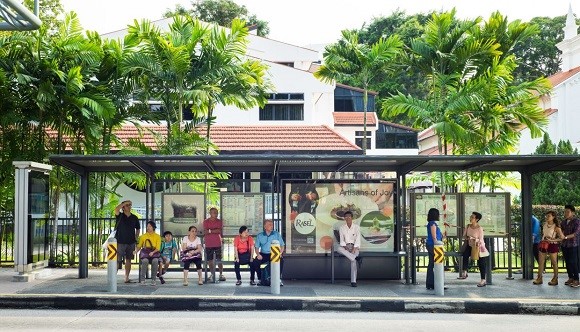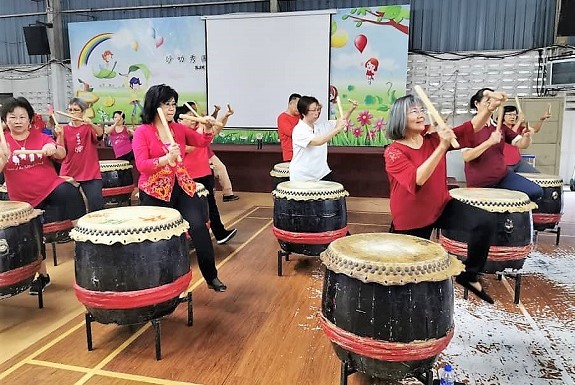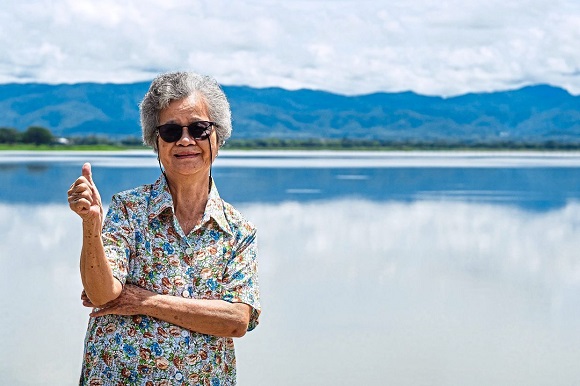 |
| Retirees face age discrimination in the workplace. However, there are other options to consider if you want to work post retirement. - 123rf.com |
We love to have options, don’t we? Options allow us to choose what appeals to us, like the option to retire early at 40, the option to continue working after 60, or to return to work after retiring.
What about those who have no options, who find their retirement savings may not be sufficient to see them through the next 15 to 20 years? With inflation fast shrinking the value of our ringgit, can we say with certainty we are financially secure to enjoy our retirement years?
What is the solution? Go back to work? Easier said than done.
Retirees face age discrimination in the workplace. Society still has a negative perception of older adults as slow, frail, forgetful, unable to keep up with the times. Unless they have skills or experience that are highly sought after, retirees will have difficulty re-entering the job market.
With the wealth of experience, skills and qualifications that retirees have, it seems a shame to be discriminated against for re-employment. Some employers say retirees are too expensive to hire based on their last drawn salary. Others say older workers are not as capable mentally and physically as younger workers. It is unfair to paint all older persons with the same brush.
Indeed, those who have secured jobs are grateful and have proven to be dedicated employees, often going beyond their job scope. And they do not job-hop. Surely mutually agreeable terms can be worked out. Older workers could work part-time or flexi-hours and accept a lower pay.
Part-time option
One of the most popular encore careers (second career on retirement) is to set up a consultancy in your field of expertise. If you don’t want the stress of setting up your own company, you could operate a simple home-based business making use of your skills and passion.
Retired teachers can do edit and translation work or give home tuition. The more enterprising retirees that I know sell home-roasted nuts, freshly brewed Masala tea and packaged spices. Those who love sewing find a niche in making and selling tote bags, hats and purses, while those good at embroidery can demand a good price for made-to-order kebaya blouses.
Also consider offering physiotherapy and grooming services such as pedicure/manicure to stay-home elderlies.
The most popular still remains providing homecooked meals. If the menu is specially targeted at senior citizens, like offering healthy soups, food that is less spicy and not deep fried, such promotion will attract more orders.
Women have a clear advantage in generating revenue streams. They form the biggest percentage of shoppers. They hold immense purchasing power as they are the ones to do the shopping for the family, as well as handle the family accounts and budget. They understand prices, supply and demand in the market.
An excellent example are the women of Kelantan. Their business acumen is inherited from the women in their family before them. A passing down from their grandmothers and mothers.
As for the men if they are good in sports, they can build a clientele as a tennis or swim coach, a personal trainer or a yoga/taichi instructor specialising in teaching older persons. Or a dance instructor. Retirees enjoy learning new things, whether it’s picking up a new language, a music instrument or a new skill.
With the growing interest in the senior market, there is a demand for seniors to promote products and services. TV agencies and production companies are always scouting for older models for their clients.
It is more credible to use a youthful-looking senior citizen to promote anti-ageing beauty products or health supplements than to have a pretty young woman do so. The pay can be quite good.
If you don’t fancy working for someone else, you can always start your own business and be your own boss. This involves taking on some risks, especially financial ones. You will likely face rejection for a bank loan unless you have sufficient assets as collateral. If you are unable to secure a loan or find partners, you may have little choice but to inject your retirement savings into the venture. Do due diligence and study the market before you take the plunge.
If you are unsure of what to go into, the Japanese concept of ‘ikigai’, or purpose in life will help boost your chances of succeeding in the business or employment you want to get into. Leverage on your vast working experience, skills and interests. Think of yourself both as a senior consumer and senior provider. What services and products do you need or want but that are not easily available?
That could be a starting point.
What about being an entrepreneur?
According to Global Entrepreneurship Monitor, the more successful entrepreneurs are in the 55-64 age group, and the number is growing, in response to global population ageing. They have the experience plus the skills, networks and capital to start an enterprise. Still, it pays to be cautious when deciding on a new business venture especially if you have always been an employee, and now you want to be a business owner.
Retired professionals who have had successful careers have huge spending power. They are as yet an untapped market. If you can cater to them, you will be generating a good steady income. Seniors best understand the senior market. Think out of the box.
Be aware of the hard work you will have to put in as an entrepreneur. You can’t afford to take holidays, or pay yourself well. You have to sacrifice family time. You have to work out a business plan, figure out the logistics, determine pricing and find out what legal documents are required. This is just a fraction of the tasks you will need to deal with. Go in with your eyes wide open.
Social media marketing is crucial to get your service or product known to as many potential customers as possible. If you know nothing about e-marketing, get your adult children to come onboard and turn it into a family business venture. Or employ someone who can handle this aspect of the business for you.
Some retirees may feel investing in shares is the best option. Unless you have a track record as a successful investor, it’s best to stay clear of putting your hard-earned savings into stocks and other financial products that you know little about. Just because everyone is talking about cryptocurrency stocks it doesn’t mean you should rush into it.
If you really want to invest, consider investing in EPF. Not only is it backed by the government with guaranteed returns, you also enjoy compound interest on your savings. You will be happy to watch your savings grow each year.
Entrepreneurship, self-employment and re-employment are options available for retirees to boost their savings, and remain financially independent. This relieves the burden on their children to support them. It also eases the responsibility of the government to provide welfare and health care for the ageing population.
By continuing to work, these seniors contribute to the economy through the payment of taxes.
Successful senior entrepreneurs also create jobs through staff recruitment. It certainly looks like senior entrepreneurship and self-employment are the way forward for retirees seeking to supplement their retirement funds. It’s a win-win situation for all.
Lily Fu is a gerontologist who advocates for seniors. She is founder of SeniorsAloud, an online platform for seniors to get connected and enjoy social activities for ageing well.
This article was first published in the print edition of The Star dated 20 Dec 2023. It can be accessed at this LINK.



















.jpg)


.jpg)











